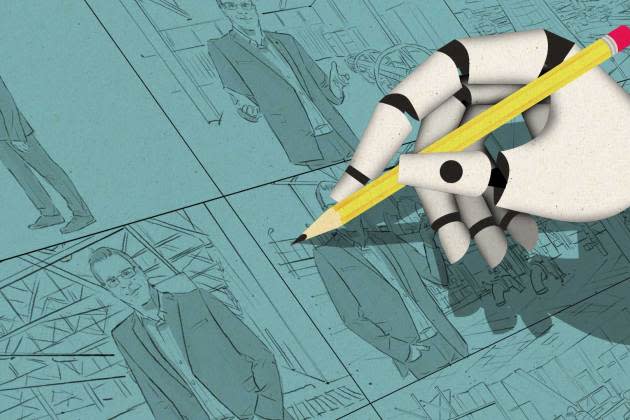AI Spending to Surpass $13 Billion by 2028, Media Analysts Predict

AI spending is expected to crest above $13 billion by 2028, with the spread falling fairly evenly across analytics, development/delivery and customer experiences like personalization and discovery, media analysts announced at a Series Mania presentation on Thursday.
However, the analysts do not anticipate the content creation apocalypse that has underscored much AI coverage of late.
More from Variety
Leading off a daylong series of panels that confronted those two troubling vowels on everyone’s mind from a panoply of industry perspectives, research directors from Omdia and Plum Research instead sought to give context – to assuage fears and misconception by framing machine learning more as a tool than as a weapon.
“AI will not replace humans,” said Omdia’s Maria Rua Aguete, echoing a common refrain. “But humans that know how to use AI will replace those who don’t, because they will be more efficient, more creative, and [better] prepared.”
Tellingly, very few of the anticipated uses involved OpenAI’s text-to-video generator Sora. The two analysts offered a more sanguine view of the recently launched model, pointing out strengths and weaknesses of a tool they predict to be more useful for short-form advertising, web clips and test videos than for film and television production due to the difficulties in controlling the output in terms of quality and reliability.
Instead, Plum Research’s Jonathan Broughton cited concrete ways generative learning could both ease and assist workflows in storyboarding and previz, while 3D models could better facilitate location scouting and lighting tests. By way of actual production, the analyst saw more uses for the tech in live sports given AI’s aptitude for object tracking and real-time prediction.
If anything, the postproduction sector should see the most pronounced effect, as assistive tools – and not generative – assume greater prominence in image grading, color correction and frame-rate enhancement, while real-time dubbing and captioning technology grows ever more accurate and cost-effective.
“In terms of business, AI is going to be really useful for making the inaccessible accessible and for solving problems we’re having with talent [shortages],” Broughton explained. “[Which means that] the main challenge right now is on the management side. It’s up to business leaders to understand how to deploy this within their organizations and to create processes within existing workflows.”
Best of Variety
From 'The Idea of You' to 'Apples Never Fall': The Best Book-to-Screen Adaptations to Read This Year
Sign up for Variety’s Newsletter. For the latest news, follow us on Facebook, Twitter, and Instagram.

